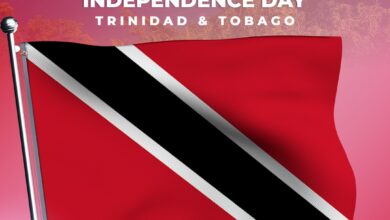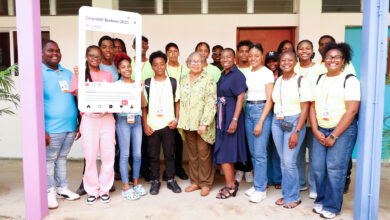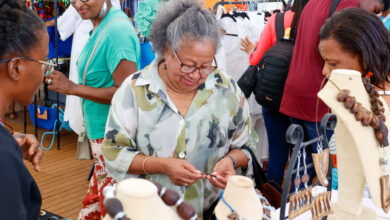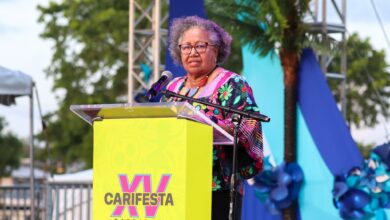CARICOM Secretariat, Turkeyen, Greater Georgetown, Guyana) Nine CARICOM Member States participated in a multi-stakeholder meeting within the margins of the Connect the Americas Summit to showcase their projects and woo potential investors.
The Multi-stakeholder meeting brought together potential investors, countries and organisations to discuss the several projects show-cased for investment at Connect Americas Summit, which opened in Panama City last week Tuesday.
Director of the Telecommunication Development Bureau of the ITU Mr Brahima Sanou, who chaired meeting, reported that 82 projects valued at USD 53.4 billion were submitted. He was of the firm belief that when implemented, the projects would add momentum to the success stories of the Summit, but reminded participants that there were still many opportunities for investment and partnerships other than the success stories.
More than 50 projects were fielded by CARICOM Member States, ten of which were considered regional projects and the Meeting received presentations on the regional projects.
Dr Bernadette Lewis, Secretary-General of the Caribbean Telecommunications Unit (CTU), spoke to the range of vulnerabilities that the Region faced as small-island and coastal developing states. She also highlighted the Region’s commitment to building competitive economies through ICT; and invited potential investors to consider the fifty plus projects submitted given the ‘stable democracies, transparent, open attractive environment’ of the Caribbean.
Ms Jennifer Britton, CARICOM Secretariat Deputy Programme Manager, ICT4D, in presenting an overview of the CARICOM projects, pointed out that they were developed in direct response to the challenges faced by Small Island Developing states (SIDS).
She stated that the regional organisations were prepared for investments in Regional Broadband, Spectrum and Content development projects. She also pointed to the opportunity to be able to invest in projects which encompassed Latin America and the Caribbean – for example projects related to Spectrum.
Mr Ken Sylvester, Chief Executive Officer of the Caribbean Knowledge Learning Network (CKLN), told the gathering that C@ribNET was successfully launched; however there was an issue of sustainability beyond 2014. Support was therefore needed in developing all national research and education networks (NRENs) required. He noted that the type of applications available for use via C@ribNET was also critical.
Ms Bridgette Collins, Chief Information Officer of the University of the West Indies explained that the University’s ‘Single Virtual University Space’ project was responding to the need to extend the reach of UWI to the underserved regions and to create a single virtual university space for its current 47, 000 enrolled students across the Caribbean region. She added that the University wanted to create a technologically enabled platform to connect seamlessly and integrate all of its locations.
Ms Regine Fraser, Secretary-General, CANTO outlined CANTO’s particular interest in finding a platform to encourage doing business online for governments and small and medium sized enterprises.
Other presentations were by private firms and NGOs. The ‘traditional’ development partners attending the Meeting included the Inter-American Development Bank (IADB) and the World Bank. The IADB representative told the more than 100 participants attending the meeting that the organisation was working on developing a special programme focused on broadband with the key elements being public policy and infrastructure among mothers. The representative said he was particularly happy to see related project proposals from the Caribbean and Latin American delegations. Spain indicated its intention to participate fully and mentioned its active involvement in the previously held Connect Africa initiative.
The Meetings of the first day also saw participants from Member States negotiating the text for the Communiqué to be issued at the end of the Summit. The CARICOM Member states were instrumental is ensuring that priority areas for the Region – local content and applications development, SME developing including E-commerce and Child online protection.
Nine CARICOM Member States attended the Summit of which seven were represented at the Ministerial level.





